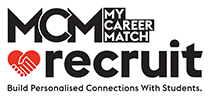There’s evidence to support the proposition that people with the same personality type tend to cluster in similar occupations. So, if I profiled an accounting firm, I would find people with similar personalities making them ideal for the job, that is, follow rules, attention to detail, enjoy working with facts and information, cooperative and conscientious. Quite different to a marketing company. These folks would be fast-paced, enthusiastic, people-oriented, outspoken, opinionated and enjoy working with people who have big ideas.
Personality covers a raft of personal strengths such as work ethic, traits, behavioural preferences; in fact, it’s like your DNA, it reflects who you are from a young age and stays with you as an adult. That’s why as parents you see the differences in your children’s (or partners) behaviour such as how they manage disappointment, stress, friendships, social norms and relationships. Are they active and outgoing, or just as happy being on their own?
If personality types cluster together in certain occupations, it would follow the same people who would be studying the same subjects at school and university. As relationships go, we tend to get along better with people who are like us and find those whose personality is totally opposite, quite difficult.
Each year we analyse the responses students in Year 9 – 12 gave to their MyCareerMatch questionnaire. MyCareerMatch is our personality profiling tool helping students discover who they are, their personal strengths and the careers we suggest they consider.
Choosing a career is one of the difficult decisions a child has to make. The survey indicates that in Year 12 (the last year in Australian high school) 24% say they’ve chosen their career, whilst 71% are still undecided and 5% have no clue. What’s interesting is 51% say they’re going to university. So, we’re off to uni but unsure what we want to be, sound familiar?
Analysis of Australian students in Year 9 – 12 (14 – 17-year-olds) provides us with an insight into their future career and study. This is how they describe themselves.
35% Drivers: fast-paced, decisive, active, success-driven, results orientated, love a challenge.
26% Promoters: Influencers, strong people skills, motivational, inspirational, enthusiastic organisers.
22% Analysers: Detail, factual, problem solvers, accurate, focused, orderly and precise.
17% Supporters: Stable, supportive, reliable, trusting, caring, people skills, patient and considerate.
Analysers represent 22% of students are more likely to do medicine, STEM, accounting, research, finance and administrative tasks. And yet there are not enough of them to meet Australia’s needs.
Despite huge efforts to increase interest in STEM, the needle hasn’t moved much. To make a difference we need to increase the number of Analysers and Supporters in Australia and our STEM and healthcare problems would be solved. This is what the Government is doing.
The Skills Migration Program targets people overseas who have occupations where there are domestic skills shortages. The list contains hundreds of occupations best suited to Analysers, such as accountants, engineers, technologists, teachers, trades, scientists, IT and medical personnel. And the even lower percentage of Supporter types, creates a shortage in nursing, animal care, community service, health services, aged care, child care, paramedics, logistics and service industry. These are not occupations most Drivers and Promoters want to do.
So, for education providers to survive and grow, they’ll need to create more courses and study options for personality types, especially for Drivers and Promoters. But I’ll leave this topic for another day.
Nathan Chanesman | CEO | MyCareerMatch Recruit
MyCareerMatch Recruit partners with educational institutions to engage and drive student recruitment. Contact nathan@mycareermatch.com.au







